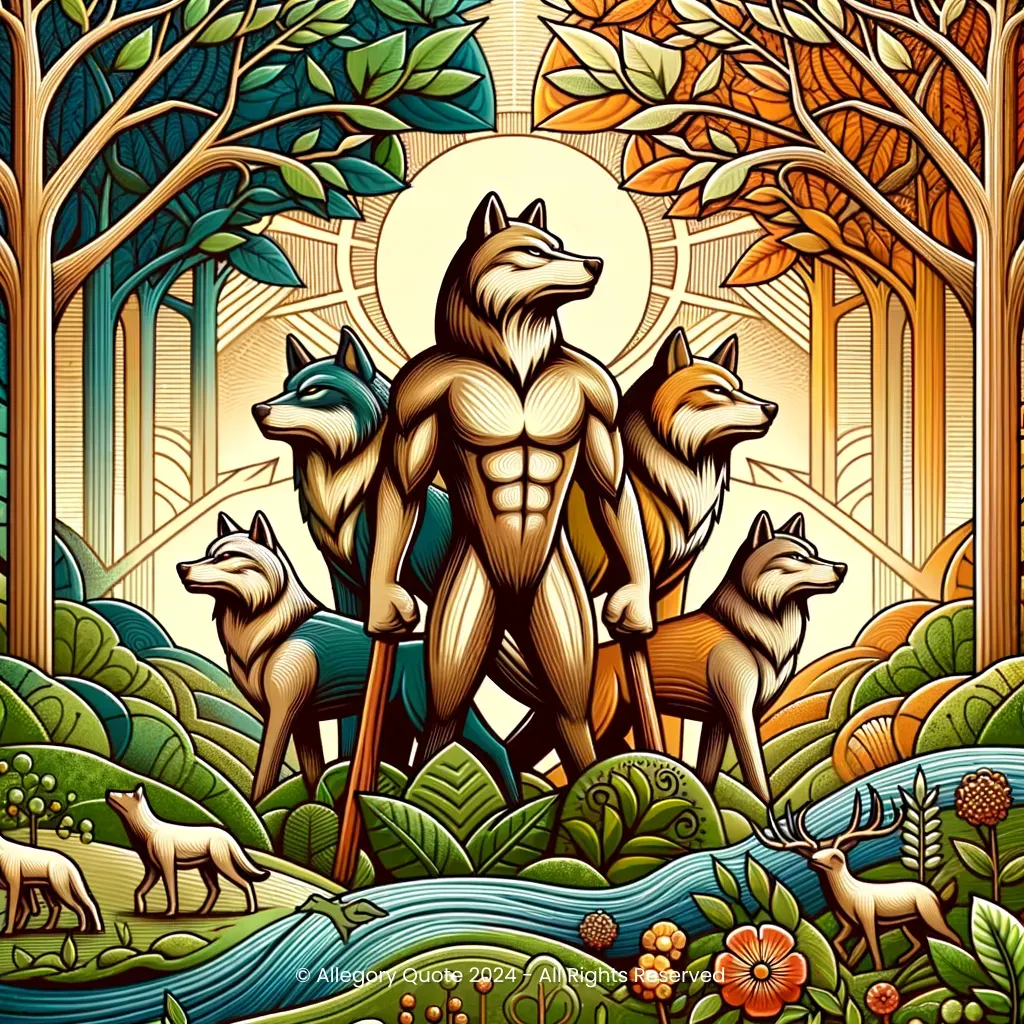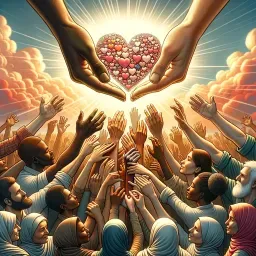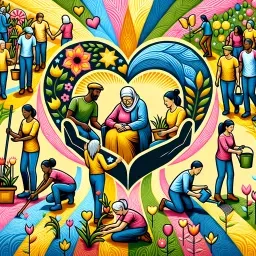”For the strength of the Pack is the Wolf,
and the strength of the Wolf is the Pack“

0
0
0
0
- Meaning
- The phrase emphasizes the importance of community and cooperation. Philosophically, it touches on ideas of interdependence, suggesting that individuals within a group contribute to the strength and survival of the whole. Psychologically, it highlights the notion of belonging and support among members of a group, while historically, it illustrates tribal and social structures where survival depended on unity and cooperation.
- Allegory
- The image captures the essence of the phrase by placing a majestic wolf at the center, representing individual strength. Surrounding it are its pack members, illustrating the support and cooperation that amplify the strength of the individual. The forest backdrop symbolizes a thriving community, while the budding flowers symbolize growth through collaboration. The overall visual conveys a sense of harmony and the importance of unity in achieving greater strength.
- Applicability
- Applying this phrase in daily life can lead to recognizing the value of teamwork and collaboration. In personal relationships, it reminds us to nurture connections and support each other. In a workplace setting, it emphasizes how employee strength contributes to organizational success.
- Impact
- The impact of this phrase is significant in exploring themes of community strength, loyalty, and teamwork across literature and culture. It has served as inspiration for discussions on leadership and camaraderie in various fields, including sports, management, and social activism. The quote is frequently cited in motivational contexts.
- Historical Context
- The phrase originates from Rudyard Kipling's work published in 1894, where it reflects the social structure of wolf packs and can be analogously related to human societies.
- Criticisms
- Critics might argue that the phrase oversimplifies the balance of power dynamics in groups, with the potential for some individuals to dominate while others are marginalized. Such criticism highlights instances where pack dynamics don't equate to equitable cooperation.
- Variations
- Variations of this phrase exist in other cultures, such as 'It takes a village to raise a child,' which shares similar sentiments about collective responsibility and cooperation in nurturing and support systems.
-

The very things that hold you down are going to lift you up.
-

Sometimes, the smallest things take up the most room in your heart.
-

Only a life lived for others is a life worthwhile.
-

Now that’s what I call a party!
-

We scare because we care.
-

The sky’s awake, so I’m awake!
-

You don’t need a cape to be a hero.
-

Nobody gets left behind.
-

All it takes is faith, trust, and a little bit of pixie dust.
-

I’m just a girl, standing in front of a boy, asking him to love her.
-

I’m a real boy!
No Comments